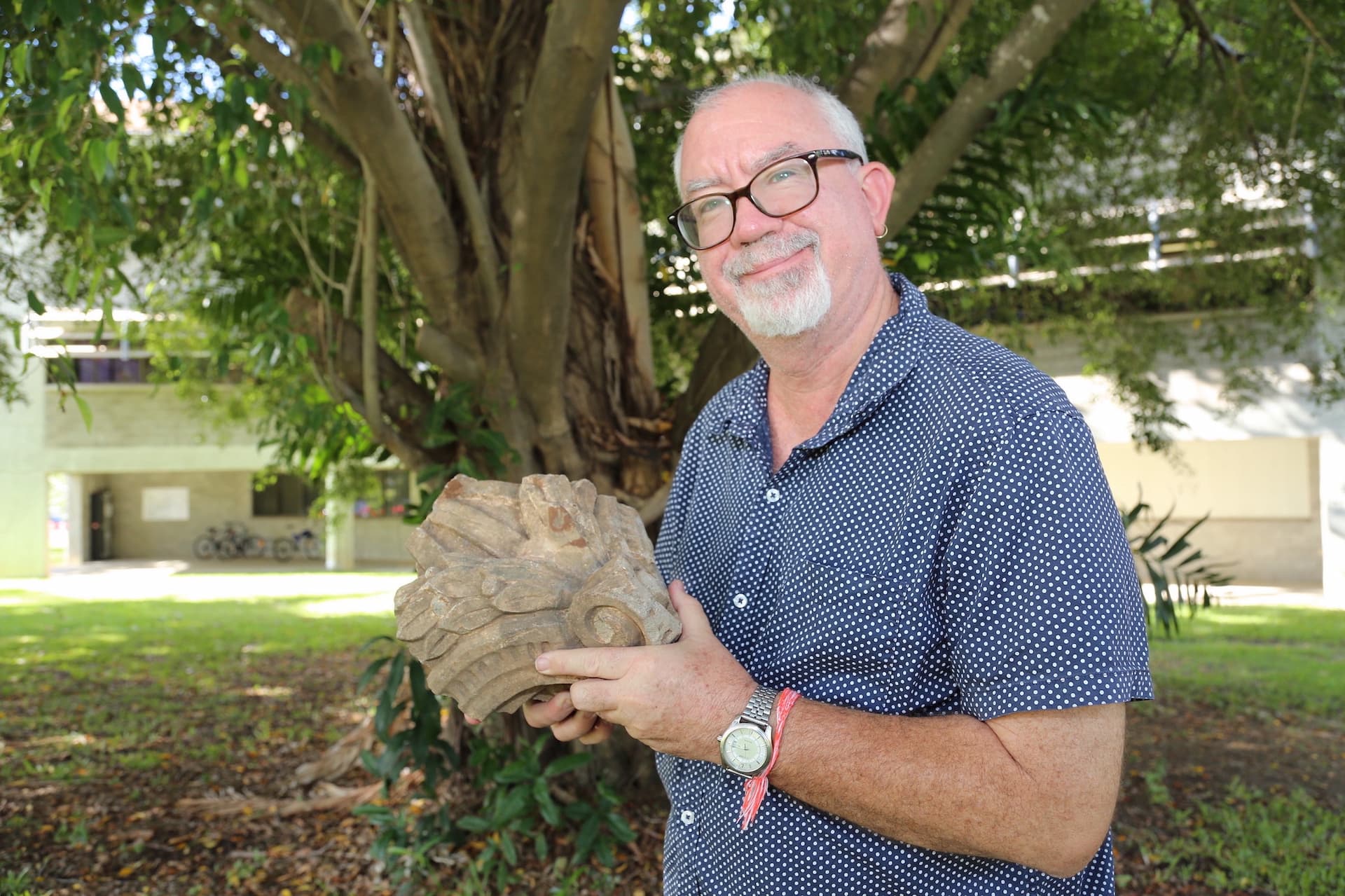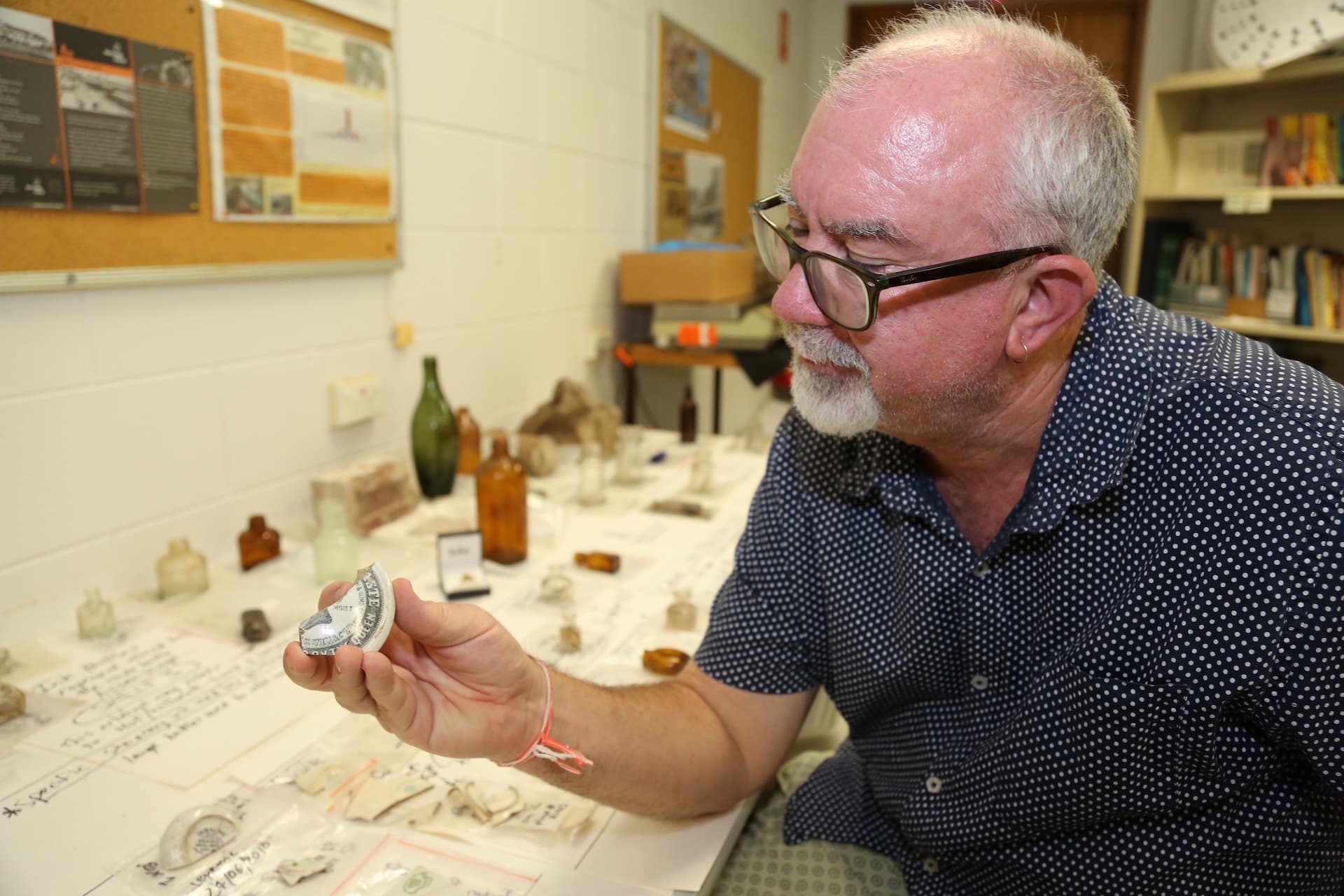Digging into the past

Whether it’s examining a rare gold pendant found out at the bottom of Hervey Range or uncovering the secrets of ancient copper mining in Laos, Dr Nigel Chang traces the footsteps of our predecessors every day.
The James Cook University archaeology lecturer loves nothing more than examining artifacts that hold clues to our past, taking that passion with him no matter where he goes in the world.
“Archaeology is a great way to reflect on human society and how we got to where we are,” Nigel said.
“It’s all about understanding diversity and variety in human civilisation through space and time, which is fascinating.”
Originally from New Zealand, Nigel initially studied zoology at Otago University before an archaeology subject inspired him to switch his career path.
“I found it really fascinating. It was a nice mix between the sciences and humanities,” he said.
“I came from a practical farming background so there were similarities in archaeology which appealed to me as well.”
Gaining on opportunity to do field work late in his degree, Nigel thrived in his new environment as he examined a sand dune site on coastal New Zealand.
“Being able to find the remnants of wooden posts from old settlements and even bones from extinct Moa birds, you can make connections from the physical evidence to those people from the past – whether it’s 100 years ago or several thousand years ago,” he said.
Expanding his horizons further afield, Nigel has been a part of several archaeological digs in south-east Asia where he’s been able to uncover how ancient communities lived in Laos and Thailand.
During his first expedition to Nong Nor in Thailand in 1991, the then graduate archaeology student was part of a team exploring a two-and-a-half thousand-year-old Bronze Age cemetery site.
“It was a fascinating site. We went there for three summers,” he said.
“It gave us some insights into the lives of the early farming people and how they developed new farming technologies and a new lifestyle in south-east Asia.”
Having recently returned from Laos with his students on an exchange project visiting archaeological sites together with archaeologists and students from the National University of Laos, Nigel knows the power of archaeology in being able to forge community identities.
“One of the sites I’ve worked on in Thailand has a museum there now; built from funding that the community has raised through local universities and the government to help develop their local economy,” he said.
“So, the heritage industry can be a great support for livelihoods in smaller places.”

Since arriving at JCU in 2005, Nigel has also focused on historical projects in the Townsville region, exploring what remains of the early European settlement period from the 1860s to the 1880s.
“The most interesting thing for me is the connection from Townsville to the original township of Dalrymple out on the Burdekin River,” he said.
“There was the old Hervey Range Road and there were a number of hotels and locations along that route to Dalrymple. They’ve pretty much been forgotten because the roadways moved around in different directions especially after the establishment of the railway to Charters Towers in the 1880s.
“We’ve been working with Townsville City Council on these sites for many years and one of my students has completed a great PhD project on the original community at the base of Hervey Range.”
Heading up the Honours Field School in Townsville, Nigel introduces his students to field work and helps develop their archaeological skills – from planning a project to completing a final report.
“I was the first in my immediate family to go to university and it’s opened up a whole new world for me,” he said.
“What I like about these archaeology exchange projects is that I can take students who come from similar circumstances to me and expose them to a broader world. They get a much better understanding of different cultures and communities.
“Archaeology is a great way to do that. We can piece together the past and make great connections with students, communities and researchers overseas.”